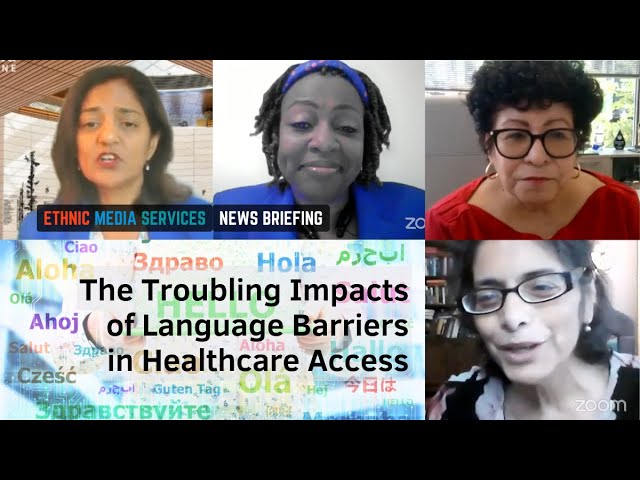More than 14 million people in the US lack basic English skills. Language barriers have been associated with limited access to healthcare and poorer health outcomes. Non-English-speaking patients often receive less preventive care compared to their English- speaking counterparts and face greater challenges in accessing healthcare.
As the number of non-English-speaking patients is projected to increase in the United States, it becomes crucial to develop innovative methods to facilitate communication between clinicians and patients.
Ethnic Media Services collaborated with Stanford CARE on their July 21st conference call and presented the latest data on the healthcare of non-English-speaking patients, identifying underlying obstacles that hinder their access to care, and exploring potential solutions to remove barriers and improve their health outcomes.
According to Dr. Latha Palaniappan, co-founder of the Center for Asian Health Research and Education at Stanford University, according to the 2019 rate of families with limited English proficiency by home language, Chinese-speaking families, which include Cantonese and Mandarin, have the highest rate of more than 30%. Patients and families with limited English proficiency face greater health inequalities and poorer access to care.
If an interpreter is not used on admission or discharge, their length of stay will be increased by three days. But using translation services, mostly mandated by the government, can help. Therefore, it is necessary to emphasize to the public that if the hospital does not provide these services, it should be requested and applied for when receiving medical services.
People with limited English proficiency were four times more likely to have no health insurance and had a 34 percent higher cost per case than their proficient English counterparts, Dr Palaniappan said, because of increased costs for testing and the inability to obtain their medical history, leading to greater use of care. She suggested that translating medical information into the patient’s preferred language, using translation tools with interpreting services, would help address these issues.
Vidya Sethuraman
India Post News Service
Also Read: Increasing language access for persons with limited English proficiency







